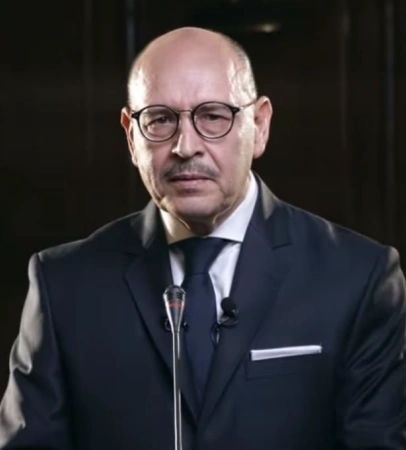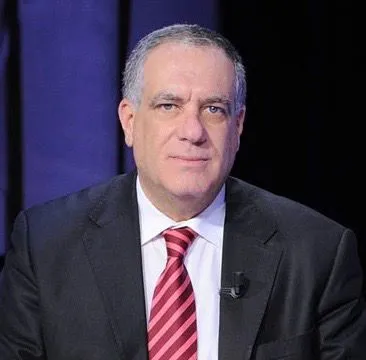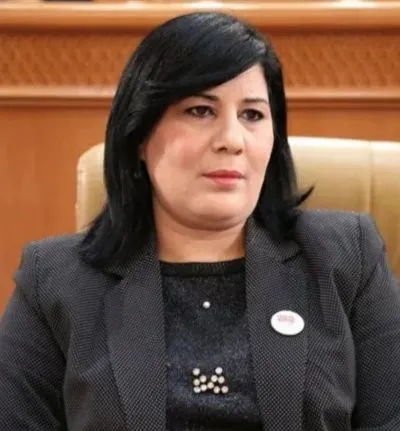Latest developments
Important links
Subscribe to the newsletter
Comprehensive Report on Candidates for the Tunisian Presidential Elections 2024, the Legal Situation, and International Positions
Tunisia is preparing for a bleak presidential election (2024), characterized by a dismal atmosphere due to legal and political restrictions and judicial harassment of opponents to Kais Saied—the current president. Following the self-coup he executed on July 25, 2021, which plunged the country into a state of political and economic instability and allowed him to consolidate power, Saied has not permitted any serious competitors to face him in the upcoming election on October 6. He has exploited the Independent High Authority for Elections, led by Farouk Bouasker, along with some judicial avenues he controls, to fabricate charges and prosecute several of his rivals.
All forms of repression have affected the electoral climate, instilling fear and uncertainty, thereby compromising the integrity of the electoral process and leading to the exclusion of several significant candidates.
1. Candidates and the Legal Situation

Status: In prison – eight-month sentence
The Secretary-General of the Popular Republican Union Party was sentenced to eight months in prison on corruption charges and faced accusations of mismanagement of resources. Despite his legal attempts to contest the rulings against him, his difficult legal status prevented him from continuing in the electoral race.

Status: Released with legal proceedings ongoing
An independent writer and politician known for his opposition to Kais Saied, Saïd faces numerous charges and has been summoned for investigation multiple times after publicly criticizing the current political system, which angered the authorities. He was previously detained for attempting to cross the Tunisian-Algerian border illegally and later released. In June 2024, he received a four-month prison sentence for allegedly forging signatures during his candidacy for 2014 presidential election.
Source:

Status: Outside the country and wanted for investigation
A former minister in the late President Zine El Abidine Ben Ali’s government, Znaidi faces several charges from Tunisian authorities, including conspiracy against state security and incitement to rebellion against the current regime. He also faces accusations of forming a terrorist organization and incitement to join it, as well as conspiracy to change the state’s structure, in addition to spreading fear and chaos among the population through videos shared on social media. Despite attempts to run for the presidency, his complicated legal situation and ongoing investigations have hindered his effective participation, leading him to be listed as a wanted person by Tunisian authorities.
Source:

Status: In prison
After being accepted as a preliminary candidate for the presidency, Zammal was sentenced to one year and eight months in prison for alleged forgery of popular endorsements, effectively removing him from the race.Less than one week before the elections, Zammal was further sentenced to 3 years of prison in each of 4 cases, adding up to 12 years in prison, as well as being deprived of his right to vote in the elections.
Source:

Status: In prison
The former Secretary-General of the Democratic Current Party faces charges related to what is known as the "conspiracy against state security" case. He publicly criticized the previous government (Najla Bouden) and was convicted under new laws aimed at restricting freedom of expression (Decree 54). He was arrested in February 2023 in connection with these charges, which are part of a series of legal actions against several political figures in Tunisia post-2021.Despite being in prison, Chaouachi announced his candidacy for the presidential elections scheduled for October 2024. In his electoral statement published from prison, he emphasized his intention to defend his civil and political rights despite what he termed the repressive measures against him. He also filed urgent cases against authorities that denied him essential legal documents for his candidacy, such as a criminal record certificate and popular endorsement forms.
Source:

Status: Outside the country and wanted for investigation
Imad Daimi is a Tunisian politician and activist in the fight against corruption. He was the director of the office of former President Moncef Marzouki and is the founder of "Marsad Raqaaba," which focuses on uncovering corruption cases within government institutions.In 2024, Daimi faced charges related to alleged fraud and forgery of endorsements after his candidacy for the presidential elections was rejected. His case was referred to the public prosecution on charges of deception and concealing his legal status regarding his ban from running. Daimi denied these charges and filed complaints with Tunisian courts and the United Nations.
Source:

Status: In prison – facing multiple charges
The president of the Free Constitutional Party in Tunisia was imprisoned following a court ruling in August 2024. These rulings stemmed from various charges, including "insulting the Independent High Authority for Elections" and "processing personal data without permission," as well as charges related to "disrupting freedom of work and inciting chaos." Moussi was arrested while attempting to file a legal appeal against a presidential decree concerning upcoming local elections. Despite facing a two-year prison sentence, her supporters and party view these charges as politically motivated to prevent her from participating in the presidential elections.
Source:
2. Exclusion and Reinstatement of Candidates
The Independent High Authority for Elections excluded several candidates based on legal cases and multiple accusations. Some candidates filed appeals with the Administrative Court, which ruled in favor of some. However, the authority refused to comply with those rulings, complicating the electoral situation and raising questions about the transparency of the electoral process.
Nine days before the election, parliament amended a law on Friday, 27 September, stripping power from the administrative court over decisions made by the election authority, removing the court’s oversight role and preventing results from being potentially contested before it. The move sparked anger from opposition and civil society groups, and was rejected as illegal by a large number of law professors in a public statement.
Saied has not permitted any serious competitors to face him in the upcoming election on October 6. He has exploited the Independent High Authority for Elections, led by Farouk Bouasker, along with some judicial avenues he controls, to fabricate charges and prosecute several of his rivals.
3. International Reactions
Human Rights Organizations
International human rights organizations like Amnesty International and Human Rights Watch have expressed concern over the decline of freedoms in Tunisia. According to reports from these organizations, over 70 people have been arrested since late 2022, including politicians, journalists, and human rights activists. These arrests have raised alarms about the deterioration of human rights and freedom of expression in the country.
European Union and the United States
The European Union has expressed concern regarding the situation in Tunisia, particularly regarding the curtailment of freedoms, and stated that legal actions against candidates and journalists undermine trust in the democratic process. The United States has also called for ensuring free and transparent elections and urged the Tunisian government to respect human rights and fundamental freedoms.
4. Media Restrictions
Tunisia is witnessing a decline in press freedom. Several journalists have been arrested and charged under new laws such as Decree 54 related to cybercrime. This decree imposes penalties of up to five years in prison for publishing “false news” or criticizing government officials in ways that may be considered “detrimental to national security.” This media repression has garnered widespread condemnation from international human rights organizations.
5. Electoral Law Amendment
6. Update: Election results
Conclusion
The 2024 presidential elections in Tunisia face significant challenges, related to the exclusion of many candidates and the escalation of legal and political crises. Increasing international criticism from human rights organizations and foreign states reflects concern about the future of democracy in Tunisia, with ongoing calls for ensuring free and transparent elections and respecting fundamental freedoms.
